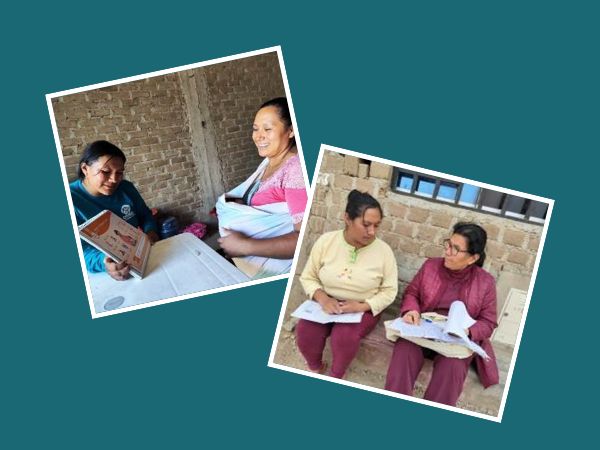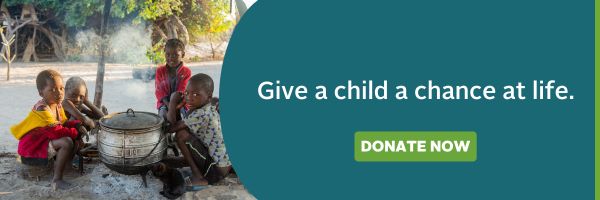Giving Strength to New Mothers in Peru

Comprehensive prenatal care, including mental health support, is essential for the health and well-being of both mother and child. But when healthcare is difficult to access, women often go without. In some impoverished communities in Peru, the lack of public transportation or the complicated cost of care can create barriers that are insurmountable for many expectant mothers. Many women are also influenced by the cultural expectation that visiting a doctor is for emergencies only.
CMMB is working to break down these barriers to care. We know that regular prenatal visits are vital for the physical and emotional health of the mother. Prenatal care, along with delivering in a health facility, also supports better outcomes for newborns and mothers. Through programming that addresses mental, physical, and emotional health, CMMB connects more women to the care they need to thrive.
Célida’s Story: Feeling Strong Again
In Nuevo Jerusalén, a community north of Trujillo, many families live without the essentials that many around the world assume will always be there. Running water is unreliable. Houses are rudimentary structures. Cell phone service comes and goes. The nearest health centers are far away, and public transportation is scarce. A high crime rate contributes to a general feeling of unease and insecurity in the community.
For Célida, 39, it was a challenging place to be pregnant with her second child. She soon faced additional struggles. Early in her pregnancy, her vomiting and nausea were so severe, she had to quit her job, a role that gave her purpose and stability. She started fighting with her partner and feeling discouraged. “I missed feeling useful,” she told us. “I missed being with people, with my teammates. Here I felt alone.”
Feeling lost, she trudged to her prenatal check-ups, a 45-minute walk. Sometimes, she took a motorcycle taxi there, but she could never afford the higher-priced ticket for the uphill return. It was at one of her appointments that she met Ángela, a CMMB-supported community health worker.
Comprehensive Prenatal Care, Made Possible by CMMB
Ángela saw how Célida struggled. Since it was hard for Célida to travel to appointments, Ángela began to visit her at home to talk things through. A psychologist came, too. “They taught me to focus on taking care of my baby before he is born, to see in my other daughter the motivation to get ahead,” Célida shared.
The support went beyond Célida’s emotional health. As her morning sickness subsided, Ángela encouraged her to apply for a temporary job as a social worker visiting other families. Célida applied—and got the job.
“The support of my community health worker helped me out of my sadness, to stop feeling alone and doing nothing,” she told us. “I was no longer depressed, I no longer said, ‘I don’t have.’ With work I could support my parents and my family.”
Célida’s confidence and motivation grew. She visited the CMMB-supported health facility more often, participating in classes about parenting, breastfeeding, and breathing techniques during labor.
“I also learned to respect myself, take care of myself, and value my mental health,” she said.
Strength for Her Future
Today, Célida feels stronger. “Without the support of CMMB, I might have continued to be sad, the problems with my partner would have affected me more,” she shared. Instead, she said, “I feel more empowered, I value myself more.” When she thinks about what comes next in her life, her dreams are clear: “My hope for the future is to have a more stable job and support my children to continue studying.”
And she has a message for other expectant mothers in her community. From her own experience, she knows they may be uncertain about seeking care.
“There is great support from the community [health worker], the nutritionist, and the psychologist,” she said. “With all of them we have the opportunity to talk about the things that we doubt or that we sometimes keep quiet so as not to worry the family.”
Thanks to CMMB, Célida’s fears and worries were heard. Instead of suffering alone, she found security, support, and hope during her pregnancy.
